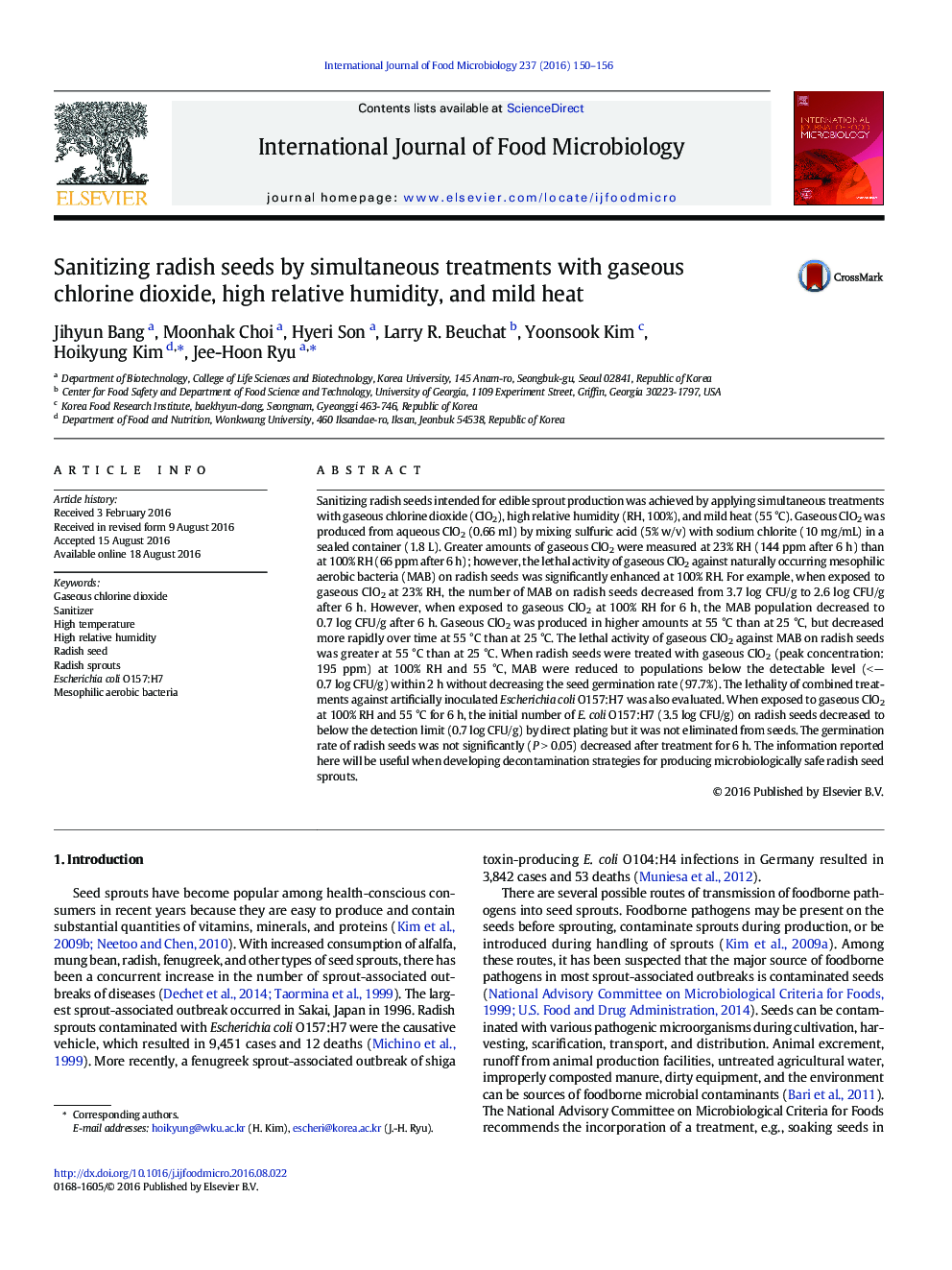| Article ID | Journal | Published Year | Pages | File Type |
|---|---|---|---|---|
| 6289737 | International Journal of Food Microbiology | 2016 | 7 Pages |
Abstract
Sanitizing radish seeds intended for edible sprout production was achieved by applying simultaneous treatments with gaseous chlorine dioxide (ClO2), high relative humidity (RH, 100%), and mild heat (55 °C). Gaseous ClO2 was produced from aqueous ClO2 (0.66 ml) by mixing sulfuric acid (5% w/v) with sodium chlorite (10 mg/mL) in a sealed container (1.8 L). Greater amounts of gaseous ClO2 were measured at 23% RH (144 ppm after 6 h) than at 100% RH (66 ppm after 6 h); however, the lethal activity of gaseous ClO2 against naturally occurring mesophilic aerobic bacteria (MAB) on radish seeds was significantly enhanced at 100% RH. For example, when exposed to gaseous ClO2 at 23% RH, the number of MAB on radish seeds decreased from 3.7 log CFU/g to 2.6 log CFU/g after 6 h. However, when exposed to gaseous ClO2 at 100% RH for 6 h, the MAB population decreased to 0.7 log CFU/g after 6 h. Gaseous ClO2 was produced in higher amounts at 55 °C than at 25 °C, but decreased more rapidly over time at 55 °C than at 25 °C. The lethal activity of gaseous ClO2 against MAB on radish seeds was greater at 55 °C than at 25 °C. When radish seeds were treated with gaseous ClO2 (peak concentration: 195 ppm) at 100% RH and 55 °C, MAB were reduced to populations below the detectable level (<â0.7 log CFU/g) within 2 h without decreasing the seed germination rate (97.7%). The lethality of combined treatments against artificially inoculated Escherichia coli O157:H7 was also evaluated. When exposed to gaseous ClO2 at 100% RH and 55 °C for 6 h, the initial number of E. coli O157:H7 (3.5 log CFU/g) on radish seeds decreased to below the detection limit (0.7 log CFU/g) by direct plating but it was not eliminated from seeds. The germination rate of radish seeds was not significantly (P > 0.05) decreased after treatment for 6 h. The information reported here will be useful when developing decontamination strategies for producing microbiologically safe radish seed sprouts.
Keywords
Related Topics
Life Sciences
Agricultural and Biological Sciences
Food Science
Authors
Jihyun Bang, Moonhak Choi, Hyeri Son, Larry R. Beuchat, Yoonsook Kim, Hoikyung Kim, Jee-Hoon Ryu,
